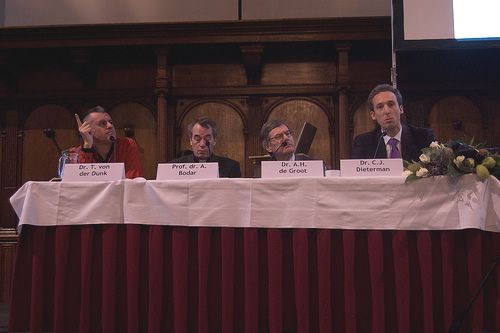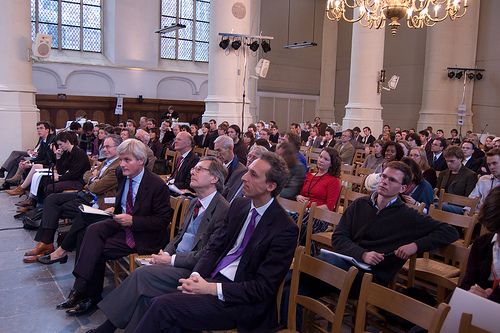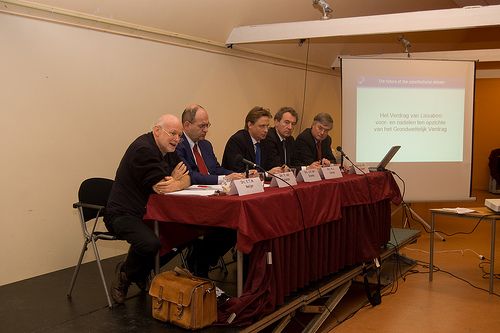



In the Netherlands November 29, 2007 the Students Association for International Affairs (SIB) addressed the various issues facing the European Union, during the XIIth Lustrum Congress "The Future of the European Union"
Key-question: 'HOW TO PROCEED IN AN EVER CLOSER UNION?
Fifty years after the founding of the European Community in Rome, the dreams, hopes and ambitions of that era have faded and are replaced by realism and incrementalism, the European Constitution was shot down by the citizens of France and The Netherlands, and although the Lisbon Treaty still remains, the bigger question of the broader future of the European Union has not been adressed.
A discussion amoung European citizens on the lines and limits along which political integration should develop, has not evolved. But if Europe continues to integrate through a technocratic and bureaucratic process, it will become a project without a soul and, perhaps even more important, a project without legitimacy.
Economic integration leads to spillovers into other spheres of government, but these advancements lack vision and vehemence. Therefore, it is important to stimulate a discussion on the future of the European Union.
What is it what we want from a European community of 27 states? On what fields should Brussels deliver? And what ougt to remain the domain of the nation state? How to construct an institutional arrangement that is transparant and has grassroots support?
The focus is not an EUtopia, but practical. Hopes, fears, critical debates, laughter and frustations about Europe's future, our future, instils a way of thinking about Europe.
The central question throughout the day:
In what way can legislation or a common identity constitute to a closer Union? How should we construct a (common) defence policy and what will be its aim? And how long will the Treaty of Lisbon satisfactory?"
Also younger people are able to organize a high level congress about the future of the EU.
A very dynamic program (splitted in a political and juridical section and furthermore in seminars, lectures and debates) and interesting theses and speakers guaranteed the success of the aim to provide participants with indepth knowledge of relevant areas of (future) European cooperation.
European identity and multiculturalism: Is there an European identity? What way do we want to go as Europe?
The future of the European Treaty: urgent need in Europe for common policies. The future of European Economic Integration. The ambivalence between the nation state and a European identity.
On the conference a volume has been published.